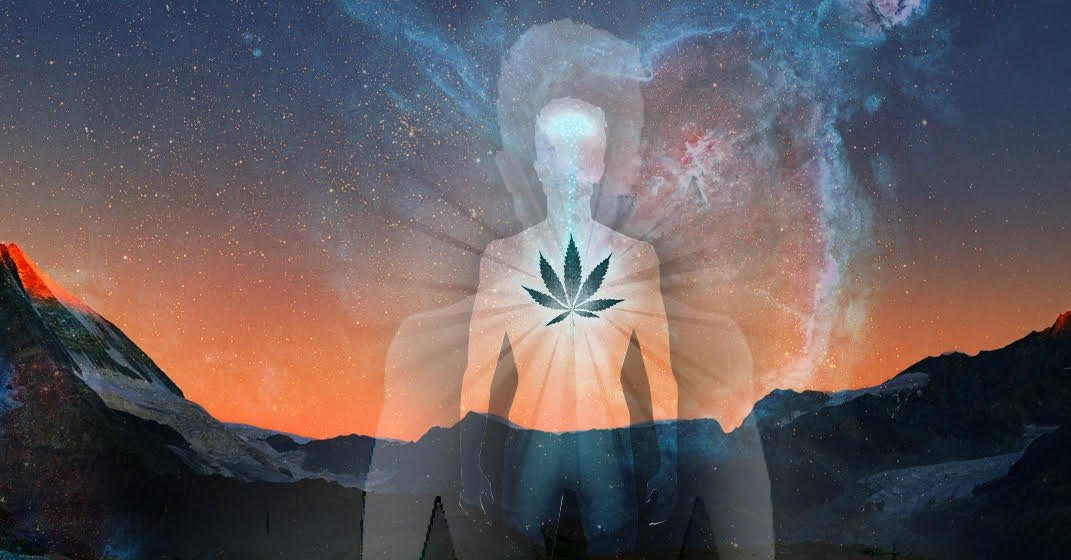- Using Cannabis to Treat the Effects of Trauma - September 5, 2018
- Using Cannabis to Treat the Effects of Trauma - September 5, 2018
- Using Cannabis to Treat the Effects of Trauma - September 5, 2018
We are all impacted by experiencing or witnessing traumatic events such as violence, accidents, and the death of loved ones. As we struggle to find ways to deal with the symptoms that can persist in the aftermath of experiencing trauma, cannabis is increasingly being hailed as a potential solution. Nearly 90% of adults in the USA have experienced a traumatic event severe enough to meet criteria for post-traumatic stress disorder (PTSD).1 Of those of us who experience such a trauma, nearly 10% go on to develop full-fledged PTSD, a disorder that involves difficulty recovering from the traumatic event, and includes feeling irritable and jumpy, avoiding reminders of the trauma, intrusive memories, nightmares, insomnia, anxiety, and a pervasive sense of doom.2 In some cases, people may even feel as if the traumatic events are happening again. The symptoms of PTSD are severe on their own but are often made worse as sufferers may withdraw from family and friends, engage in problematic substance use, and experience suicidal impulses. Sadly, a sizeable portion of people who have PTSD do not respond to frontline treatments such as medication and psychotherapy. Due to the severity of PTSD, and the lack of effective treatment for many of those who suffer, the potential for cannabis to treat PTSD has been met with much hope and enthusiasm. Although we are not yet at the point where we can decisively say that cannabis is helpful for treating PTSD, research that can help answer this question is underway. As we wait for further results, a number of interesting findings have led scientists to believe that cannabis may help some people who struggle with the aftermath of trauma. In this article, we will take a look at some of the science behind the claims that cannabis can help treat PTSD.
People with PTSD Use More Cannabis
One way of understanding whether cannabis might help with PTSD is to examine naturally occurring cannabis use among people with PTSD. Surveys clearly show that individuals living with PTSD are more likely to use cannabis than those without the disorder.3 The behavior of people with PTSD involves efforts to cope with the disorder, and as such, elevated rates of cannabis use may suggest that these people feel that cannabis is helping to relieve their PTSD symptoms. Veterans are more likely than the general public to experience a traumatic event due to the nature of their work, and report using cannabis to help deal with the after effects of military-related PTSD. One survey found that more than half of veterans surveyed reported using cannabis, and one in ten said they used cannabis specifically to relieve symptoms caused by their trauma.4 Another study of veterans found that those experiencing less symptom recovery from traditional therapies were more likely to use cannabis, and that higher levels of PTSD symptoms are associated with more cannabis use, which may suggest that cannabis is being used to treat more persistent symptoms.5 Individuals with PTSD also report using cannabis to help with PTSD symptoms such as problems with sleep and mood.678 Taken together with the many informal reports from organizations that support people with PTSD in using cannabis therapies, the use of cannabis by people with PTSD suggests that cannabis therapies deserve careful examination as potential PTSD treatments.
Cannabinoids and PTSD: Evidence from Inside and Outside the Human Body
The cannabinoids most of us are most familiar with are the molecules produced by the cannabis plant, such as THC and CBD. However, our bodies are also equipped with a specialized system that produces its own cannabinoids. That system is called the endocannabinoid system, and it helps to regulate things like sleep, appetite, and our ability to handle stress. Differences in the endocannabinoid system that are associated with PTSD symptoms can help us to understand how plant-based cannabinoids might help with PTSD. While it is not clear whether a disruption in the endocannabinoid system is a result, cause, or combination of both with regard to PTSD symptoms, people who develop PTSD after experiencing a traumatic event have been found to have differences in their endocannabinoid systems compared to those who experience similar events but don’t develop PTSD. For example, an important study of individuals who were in New York during the 9/11 attacks found that those who went on to develop symptoms of PTSD had lower levels of the body’s self-made cannabinoid, anandamide, in comparison to those who did not develop PTSD. Interestingly, anandamide resembles the THC found in herbal cannabis, which suggests that using external cannabinoids like THC may help to supplement the body’s own internal cannabis system.9
What Do Studies with Animals Tell Us About Cannabis and PTSD?
Animals also possess an endocannabinoid system and have their own ways of responding to trauma and stress. Studies of cannabis and stress in animals can provide some clues as to how cannabis use may impact stress response and learning in humans. After exposure to trauma, animals exhibit symptoms similar to those seen in PTSD, such as an amplified startle response and an impaired ability to unlearn conditioned fear responses. Previous studies have found that giving a cannabinoid to animals after exposing them to trauma can relieve these symptoms.1011
How Does Cannabis Help With PTSD?
One of the key ways that cannabis may help people with PTSD is by improving sleep. Cannabis use can impact dreaming, and among those with PTSD, it may help to reduce the frequent and disturbing nightmares that are among the most distressing symptoms of the disorder.12 A study of incarcerated men found that nearly three-quarters of inmates with PTSD who took an oral capsule of THC had their nightmares reduce or stop entirely.13 Reducing nightmares may be particularly important for improving the quality of life of people with PTSD, as better sleep can help to equip people to deal more effectively with other stressors, and may help them be more active in treatment, and with family and friends. In addition to improving sleep and decreasing nightmares, cannabis may help those with PTSD by more generally reducing anxiety and improving mood.14 However, regular cannabis use can also lead to withdrawal symptoms when cannabis use stops. Symptoms of cannabis withdrawal can include irritability, anxiety, and nightmares. Because symptoms such as these may already be problems for people with PTSD, starting and then stopping cannabis use might ultimately make PTSD worse rather than better. Helping people with PTSD who use cannabis manage their use and potential withdrawal is an important challenge that may play a big role in determining if and how cannabis medicines can be effective treatments for PTSD.
Active Studies and the Future of Research on Cannabis and PTSD
Clinical trials are an important method of establishing the effectiveness of a treatment, and completing such clinical trials will be necessary before cannabis can become a recognized treatment for PTSD. There are currently two clinical trials underway in Canada (ClinicalTrials.gov: NCT02517424) and the United States (ClinicalTrials.gov: NCT02759185) that, together, will include almost 200 participants with chronic, treatment-resistant PTSD. Both are double-blinded studies using a crossover design and different CBD/THC ratios of cannabis, including a placebo containing only a trace amount of THC. Neither the researchers nor the participants know what potency they are receiving. Both studies also have a six-month follow-up after the active participation has concluded. It is hoped that results from these trials will be available by 2020, if not sooner. Although these results may go a long way toward telling us how cannabis might be helpful for treating PTSD, information from other sources, such as following people with PTSD who use cannabis over the long term, and examining different types of cannabis—and different types of PTSD—will also be needed to help us understand how this complex plant might play a role in treating this complex disorder. Given the prevalence of PTSD, and the lack of effective treatment for many who suffer, such research is very much warranted, particularly in light of preliminary evidence that suggests that cannabis may help with some of the most troublesome symptoms of PTSD.
References
- Kilpatrick, D. G., Resnick, H. S., Milanak, M. E., Miller, M. W., Keyes, K. M., & Friedman, M. J. (2013). National estimates of exposure to traumatic events and PTSD prevalence using DSM-IV and DSM-5 criteria. Journal of Traumatic Stress, 26(5), 537–547. http://doi.org/10.1002/jts.21848 ↩
- American Psychiatric Association. (2013). Diagnostic and statistical manual of mental disorders (5th ed.). Arlington, VA: Author. ↩
- Cougle, J. R., Bonn-Miller, M. O., Vujanovic, A. A., Zvolensky, M. J., & Hawkins, K. A. (2011). Posttraumatic stress disorder and cannabis use in a nationally representative sample. Psychology of Addictive Behaviors, 25(3), 554–558. ↩
- Sterniczuk, R., & Whelan, J. (2016). Cannabis use among Canadian armed forces veterans. Journal of Military, Veteran and Family Health, 2(2), 43–52. ↩
- Bonn-Miller, M. O., Vujanovic, A. A., & Drescher, K. D. (2011). Cannabis use among military veterans after residential treatment for posttraumatic stress disorder. Psychology of Addictive Behaviors, 25, 485–491. DOI: 10.1037/a0021945 ↩
- Bremner, J. D., Southwick, S. M., Darnell, A., & Charney, D. S. (1996). Chronic PTSD in Vietnam combat veterans: Course of illness and substance abuse. American Journal of Psychiatry, 153(3), 369–375. ↩
- Bonn-Miller, M. O., Vujanovic, A. A., & Drescher, K. D. (2011). Cannabis use among military veterans after residential treatment for posttraumatic stress disorder. Psychology of Addictive Behaviors, 25, 485–491. DOI: 10.1037/a0021945 ↩
- Vandrey, R., Babson, K. A., Herrmann, E. S., & Bonn-Miller, M. O. (2014). Interactions between disordered sleep, post-traumatic stress disorder, and substance use disorders. International Review of Psychiatry, 26(2), 237–247. ↩
- Hill, M. N., Campolongo, P., Yehuda, R., & Patel, S. (2018). Integrating endocannabinoid signaling and cannabinoids into the biology and treatment of posttraumatic stress disorder. Neuropsychopharmacology, 43(1), 80–102. ↩
- Stern, C. A. J., Gazarni, L., Takahashi, R. N., Guimarães, F. S., & Bertoglio L. J. (2012). On disruption of fear memory by reconsolidation blockade: Evidence from cannabidiol treatment. Neuropsychopharmacology, 37(9), 2132–2142. http://doi.org/10.1038/npp.2012.63 ↩
- Mizrachi, Z.-A. T., Segev, A., & Akirav, I. (2016). Cannabinoids and post-traumatic stress disorder: Clinical and preclinical evidence for treatment and prevention. Behavioural Pharmacology, 27(7), 561–569. ↩
- Roitman, P., Mechoulam, R., Cooper-Kazaz, R., & Shaley, A. (2014). Preliminary, open label pilot study of add-on oral Δ9-tetrahydrocannabinol in chronic post-traumatic stress disorder. Clinical Drug Investigation, 34(8), 578–591. ↩
- Cameron, C., Watson, D., & Robinson, J. (2014). Use of a synthetic cannabinoid in a correctional population for posttraumatic stress disorder–related insomnia and nightmares, chronic pain, harm reduction, and other indications: A retrospective evaluation. Journal of Clinical Psychopharmacology, 34(5), 559–564. http://doi.org/10.1097/JCP.0000000000000180 ↩
- Walsh, Z., Gonzalez, R., Crosby, K., Thiessen, M. S., Carroll, C., & Bonn-Miller, M. O. (2017). Medical cannabis and mental health: A guided systematic review. Clinical Psychology Review, 51, 15-29. DOI: 10.1016/j.cpr.2016.10.002 ↩
Take a minute to browse our stock:
Did you enjoy reading this article?
Please support Chacruna's work by donating to us. We are an independent organization and we offer free education and advocacy for psychedelic plant medicines. We are a team of dedicated volunteers!
Can you help Chacruna advance cultural understanding around these substances?
















